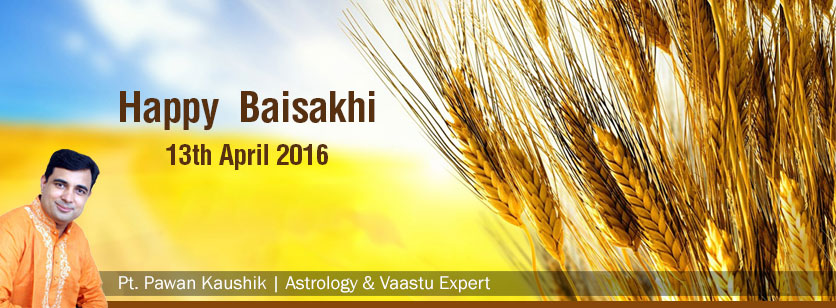
The state of Punjab celebrates the crop harvest time with full pomp and show. This harvest season is known as Baisakhi (Or Baisakhi). One can see the glitter of colours, dance and music on the eve of Baisakhi in the entire North India, especially in Punjab and Haryana. This colorful festival falls on the April 13th every year which, according to Nanakshahi, is the first day of Baisakh month. Baisakhi is the Punjabi new year and falls in the first month of Hindu calendar, Vikram Samvat. Besides this, Sikhs celebrate Baisakhi as Khalsa Panth was founded on this day by the 10th Sikh Guru, Guru Gobind Singh.
How is Baisakhi celebrated?
- Sikh people begin this day by visiting Gurudwara early in the morning, to offer gratitude towards the gurus and seek for blessing for their better tomorrow.
- They prepare langar and kadha prasadh made up of wheat flour and offer it to all the devotees present there.
- The large amount of food is prepared as prasadh. They enjoy the kirtans (devotional songs) and ardas (Sikh prayer) in the evening, followed by dance and music from dhols and nagaras
- It is customary to perform nagar kirtan throughout the streets of the city, especially during Baisakhi.
- At the end of the day, they exchange gifts and sweets among each other.
- At many places, Sikhs organize the Baisakhi Melas (fairs) to spread happiness and positivity on this auspicious day.
Astrological Significance:
Apart from the harvest, Baisakhi is marked important for various astrological reasons as well. Every year, Baisakhi is celebrated on 13th April; whereas it is celebrated on 14th April, after a gap of every 36 years. This gap is solely due to the date calculated according to the Solar calendar. The date on which Baisakhi falls actually marks the entry of the Sun in Aries (Mesh raashi). For this very reason, another name given to Baisakhi is Mesha Sankranti.
As Baisakhi marks the New Year in Punjab, this auspicious day marks the beginning of New Year for various other regions in South Asia; and is celebrated with diverse rituals and customs:
- Bikhu or Bikhauti (Kumaon region of Uttarakhand)
- Rongali Bihu (Assam),
- Maha Vishuva Sankranti or Pana Sankranti (Odisha)
- Naba Barsha or Pohela Boishakh (West Bengal, Tripura, Nepal & Bangladesh)
- Sinhalese New Year (Sri Lanka)
- Songkran (Thailand)
- Tamil Puthandu (Tamil Nadu)
- Vishu (Kerala)
 +91 9990176000
+91 9990176000 +91 9999097600
+91 9999097600
 CALENDAR 2024
CALENDAR 2024










